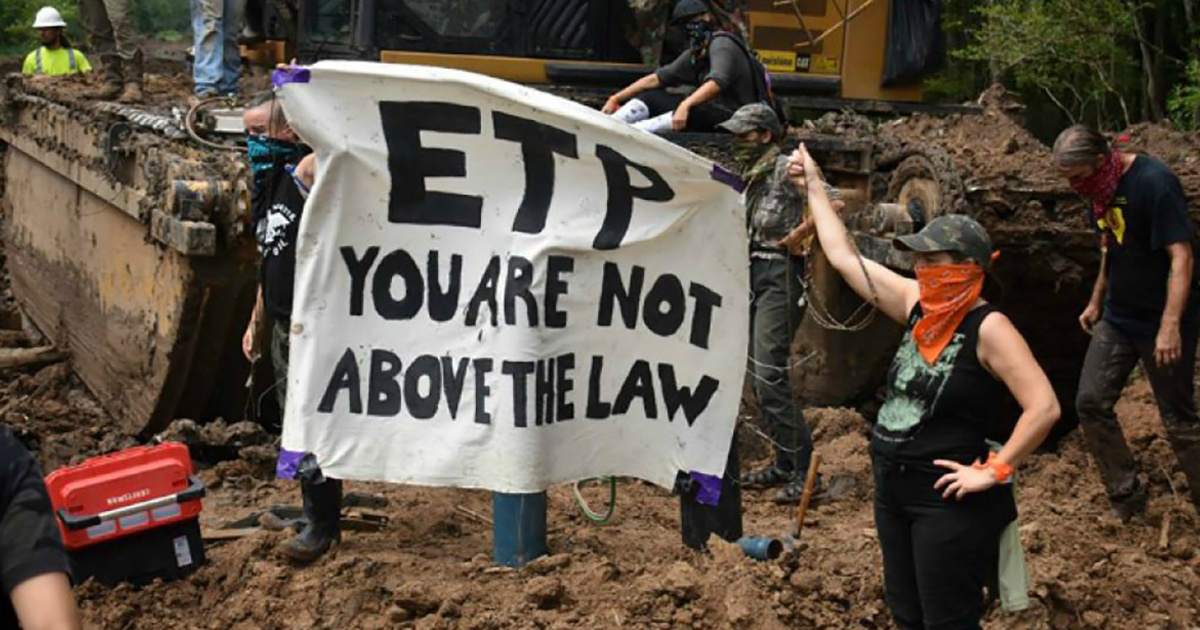
‘Major Victory’: Landowner’s Legal Challenge Halts Construction of Bayou Bridge Pipeline in Louisiana

By Jessica Corbett
In a “major victory” for local landowners and pipeline activists who are fighting to block the Bayou Bridge Pipeline in Louisiana, the company behind the project agreed to halt construction on a patch of private property just ahead of a court hearing that was scheduled for Monday morning.
The path of the 163-mile pipeline runs through Atchafalaya Basin, the nation’s largest wetland and swamp. Local landowners and activists have raised alarm about the threat the pipeline poses to regional water resources, wildlife, and communities.
Peter Aaslestad, one of several co-owners of undeveloped marshland, filed an injunction in July alleging that the Texas-based Energy Transfer Partners (ETP) was clearing trees and trenching on his property without permission. ETP—which is also behind the hotly contested Dakota Access Pipeline—claims it has the right to the use property through expropriation, a process used to take private land for public benefit.
Monday’s agreement “essentially gives us everything we would have asked for with [the injunction] request and argued for in our hearing,” Misha Mitchell, a lawyer for Aaslestad and Atchafalaya Basinkeeper, explained in a Facebook video. “The company has voluntarily agreed to cease entering onto the property and to stop all construction activities on the property.”
A court hearing for the expropriation battle is scheduled for Nov. 27, meaning the company will not meet its initial deadline of completing construction by October.
“This represents a significant victory for the conservation of the Atchafalaya Basin and for the rights of private landowners who lawfully resist their property being seized for private gain,” Aaslestad said in a statement.
A collective of activists fighting against the pipeline—who have created the L’eau Est La Vie (Water Is Life) floating resistance camp—celebrated the agreement as validation of their ongoing efforts to kill the project.
“We have been tased, pepper sprayed, put into choke holds, and beaten with batons to stop this illegal construction that ETP was carrying out despite not having an easement for the land,” the group wrote on Facebook Monday. “While this is a major victory, construction of the Bayou Bridge Pipeline continues in other parts of the Atchafalaya Basin. We won’t stop until completely shut down the Bayou Bridge Pipeline.”
Protests have continued even as state lawmakers have enacted legislation that effectively criminalizes peaceful protests of “critical infrastructure,” including pipeline projects. Last month, as Common Dreams reported, three kayaktivists who oppose Bayou Bridge were detained by private security, then arrested and charged with felonies under the new law.
The Times-Picayune reports that “at least 12 activists protesting the pipeline on Aaslestad’s property have been arrested” under the law, which took effect Aug. 1, but the district attorney “has not yet decided whether to prosecute the protesters.”
Bill Quigley, a Loyola University law professor who is volunteering as an attorney for the protesters, said they were all detained by private security before being arrested, explaining that “because they were on private property at the invitation of the owner, it’s not clear that [ETP] had any right to do what they were doing, or have people arrested.”
Reposted with permission from our media associate Common Dreams.

 233k
233k  41k
41k  Subscribe
Subscribe 